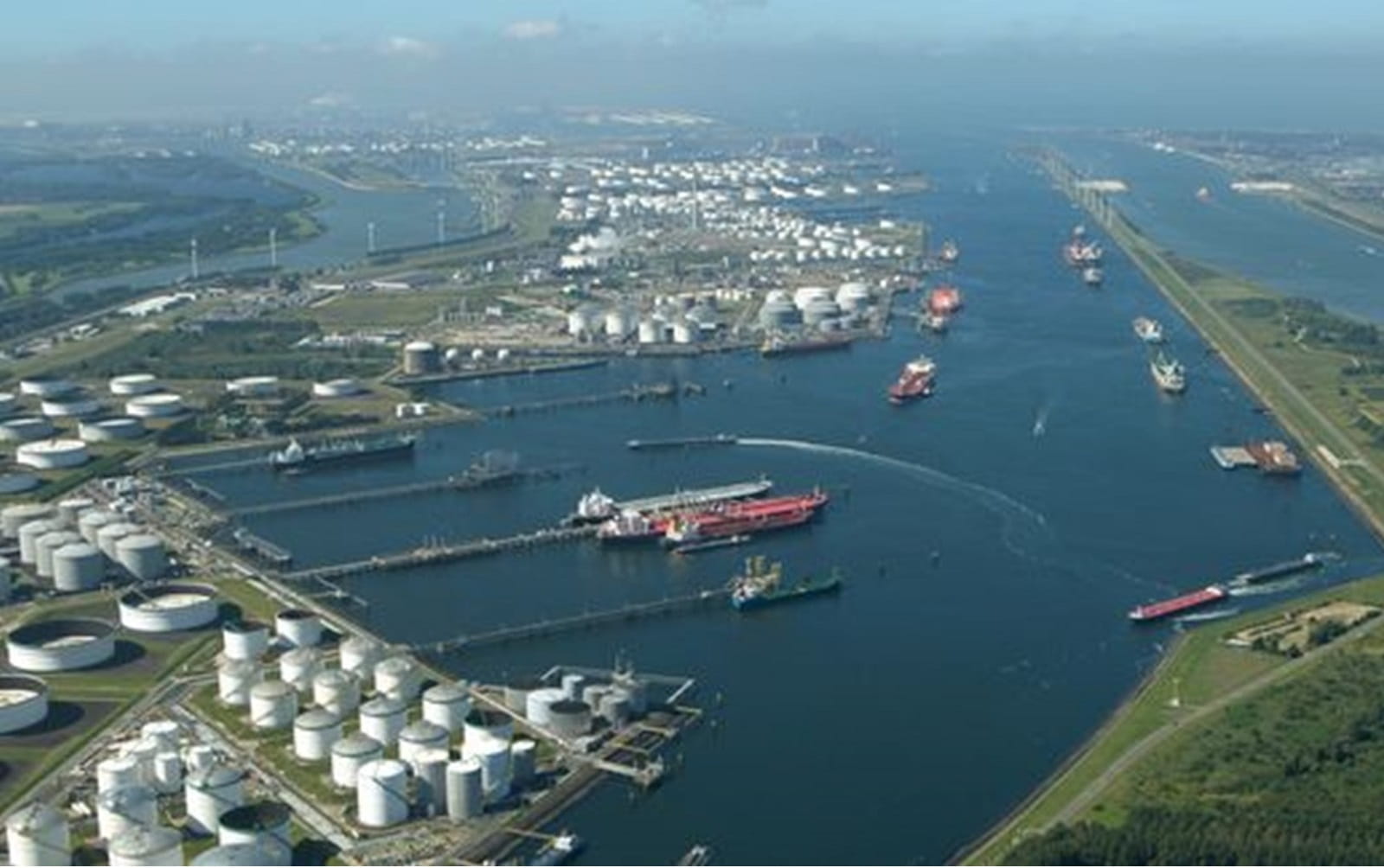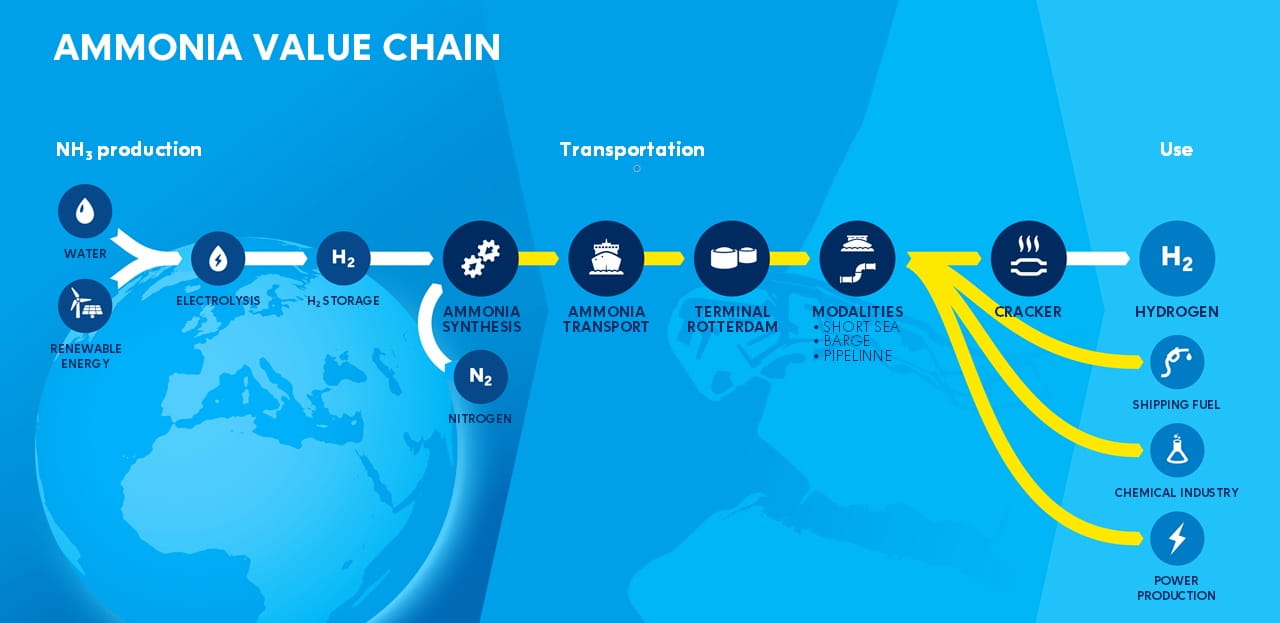Ammonia cracker realistic and safe method for large-scale hydrogen imports

A study shows it is technically and economically feasible to safely convert ammonia into 1 million tons of hydrogen per year using a large-scale cracker in the Port of Rotterdam. Aramco Europe contributed to the study that was commissioned by the Port of Rotterdam Authority and 16 other companies from the region.
Hydrogen and hydrogen compounds such as ammonia play a key role in the energy transition to replace natural gas, for sustainable transport and as a raw material for industry and chemistry. A large part of the hydrogen needed in Northwest Europe will be imported, including in the form of ammonia, which is easier to ship than hydrogen.
Results towards large-scale hydrogen imports
The study, conducted by international engineering and construction management provider Fluor, provides an inventory of available, proven technologies for converting (imported) ammonia into hydrogen. It also addresses the safety, space requirements, costs, logistical implications and expected emissions of a large-scale ammonia cracker and compares the use of one central cracker and storage location to setting up multiple, decentralized crackers or storage points.

Source: Fluor
The analysis shows that there are several proven techniques available that can be used on a large scale. The researchers expect that a central large-scale cracker will result in lower costs than a decentralized approach, due to economies of scale and more efficient storage and transport of the hydrogen.
An ammonia cracker emits no greenhouse gases and only minimal amounts of nitrogen oxides. Moreover, the use of hydrogen in industry and transport results in large net reductions in emissions of CO2 and nitrogen oxides. In the future, ammonia is expected to play an important role in the decarbonization of sectors such as chemicals and shipping. Based on the study, possible follow-up steps and projects are being contemplated.
Hydrogen hub
Aramco Europe is working with the Port of Rotterdam Authority and various other partners evaluating the feasibility of the introduction of a large-scale hydrogen network, with Rotterdam as an international hub for hydrogen production, import, application, and transport to other countries. As a shareholder in both the Maasvlakte Olie Terminal and the TEAM terminal, both crude oil terminals with storage facilities located in the port of Rotterdam, we are evaluating the feasibility of import and storage of low carbon ammonia.



